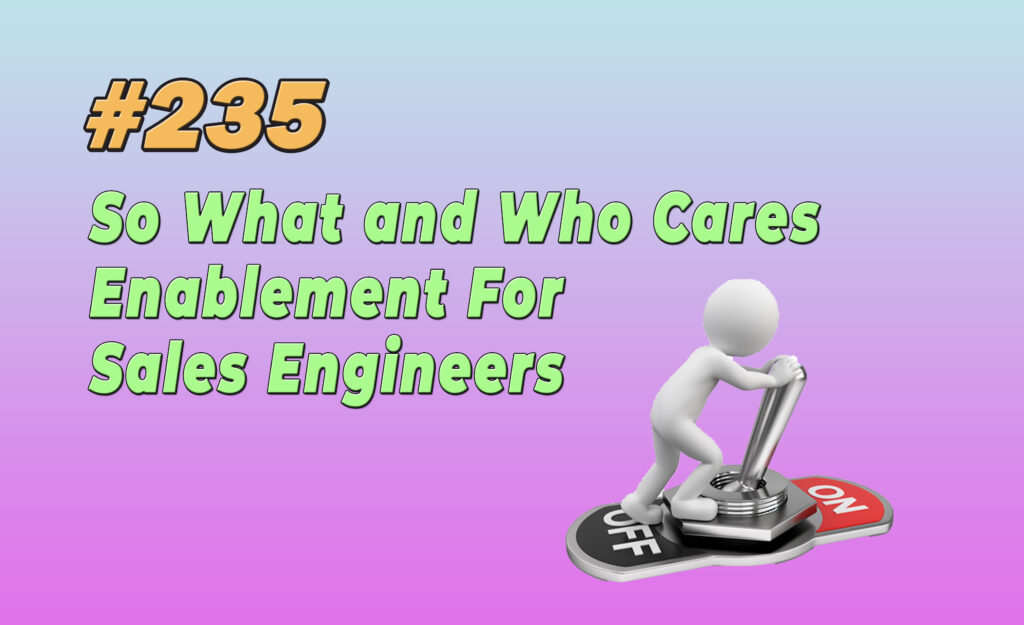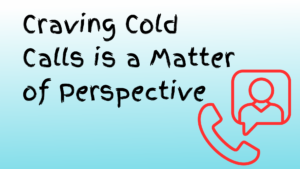
Blog
Notes:
Sales engineers are a lot of the time left to their own devices. They show up to a company, become a sales engineer and they have to figure out how to learn on their own, they might have a mentor whereas salespeople have sales enablement in most companies. Some companies have sales engineering enablement but they are few and far between. But I talked to one of these people, Paul Newsome, who is a sales engineering enablement facilitator.
In this episode, we discuss what sales engineering enablement means, how it’s different from sales enablement, why both can influence and improve the SE or salesperson’s role, and how if you’re interested, you can become an SE facilitator yourself. Also, it’s good to clear a lot of misconceptions I had about sales engineering enablement and look at it from someone else’s perspective.
Paul Newsome is currently the Senior Principal SE Facilitator at Oracle, and his mission is to help Pre-Sales Engineers make a difference by offering guidance to help them with their deals and career development.
Key Takeaways:
Tune in to our conversation with Paul Newsome and learn:
- How Paul was basically launched into the role of presales consultant by doing demos even without experience
- The “So What” Test
- His journey from presales consultant to manager to trainer to his role right now
- What does an SE facilitator mean?
- The difference between sales enablement and SE (sales engineering) enablement
- Using the SMART principle in SE enablement
- How the buyer mentality changed in the wake of the pandemic
- Why customers don’t believe in case studies and results even if they came from reputable marketing agencies
- Is there a difference between salespeople handling objections and SEs handling an objection?
- What to do during discovery, demo, and presentation
- The challenges a modern SE now has to face
- Talking about WHY
- If a company has multiple products, should you be focused on learning all of them at the same time or just focus on one?
- Skills SEs should have but struggle with
- Checklist for qualifying customers during discovery and demo
- Overcoming the fear of saying no and what to do when this happens
- Having a manual as a sales engineer
- Is there an enablement program you follow or is it based on what people need?
- Alternative to the sales process to accommodate the buyer’s journey
- A potent question Ramzi asks each customer at the end of each discovery
Quotes:
“If we don’t get over that “So what?” test at the very beginning of our onboarding process, then we’re going to struggle, and that would apply to both perhaps sales, and perhaps pre-sales as well. – Paul Newsome
“This is not just a question of saying you need to learn the products, you need to learn how to handle audiences. Don’t get me wrong, it is really important. But what about the buyer? Who’s teaching them about the buyer’s journey? Who’s teaching them how to really understand and be sympathetic to that journey, rather than trying to impose our process on them, we’ve got to be accommodating their process and therefore adapt to that particular process.” – Paul Newsome
“Whatever we do whatever we promote on our websites, to encourage customers to come and see what we can do. Let’s go back to that “o what” test” – Paul Newsome
“It’s more on the technical side, but it’s beyond the technical side. And it’s all about the delivery value. Do I understand value and what it means to the customer? And do I understand that present? How to position this? Do I understand if the customer is really understanding what I’m saying?” – Paul Newsome
“Enablement for these SEs is much, much bigger, and much, much broader. And that’s not degrading the sales reps’ importance and what they do and the different pressures that they have, but in terms of the SE, there’s a very different approach.” – Paul Newsome
I personally like to focus on a specific product. I feel like I learned the rest, by just meeting customers and hearing their questions, then coming back to do the research. Also, a lot of companies that have complex products and a wide breadth of products have specialists behind it. So leverage them until you learn the product.
“Debugging technology is so much easier than debugging humans.” – Ramzi Marjaba
It’s not just knowing the product. It’s all about what the capabilities are going forward and what they could do in the future, – Ramzi Marjaba
“Enablement should never stop.” – Paul Newsome



